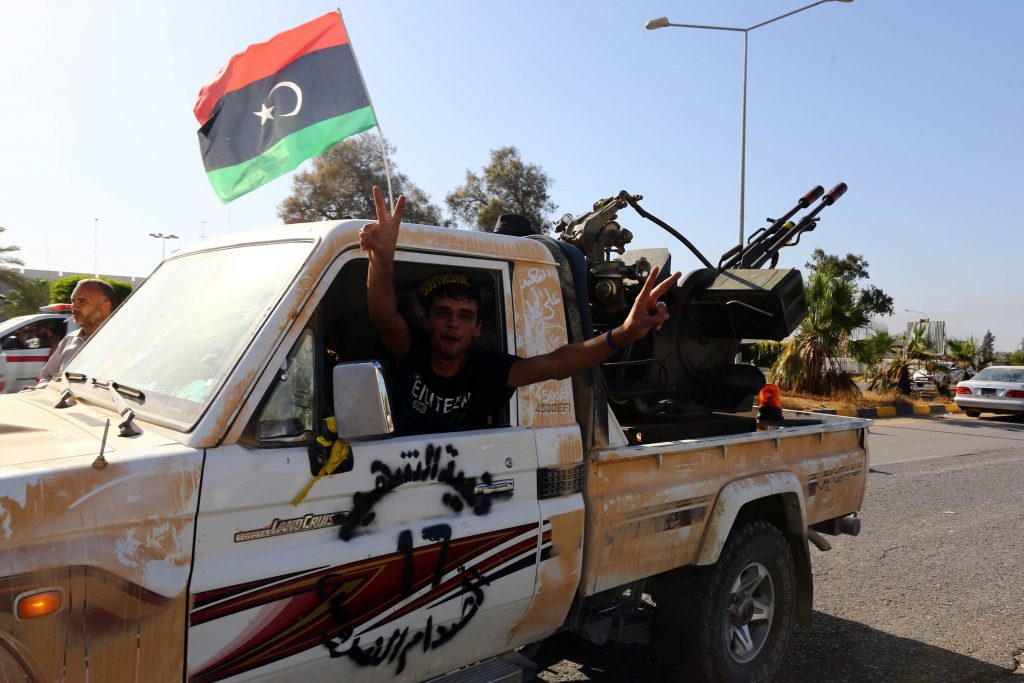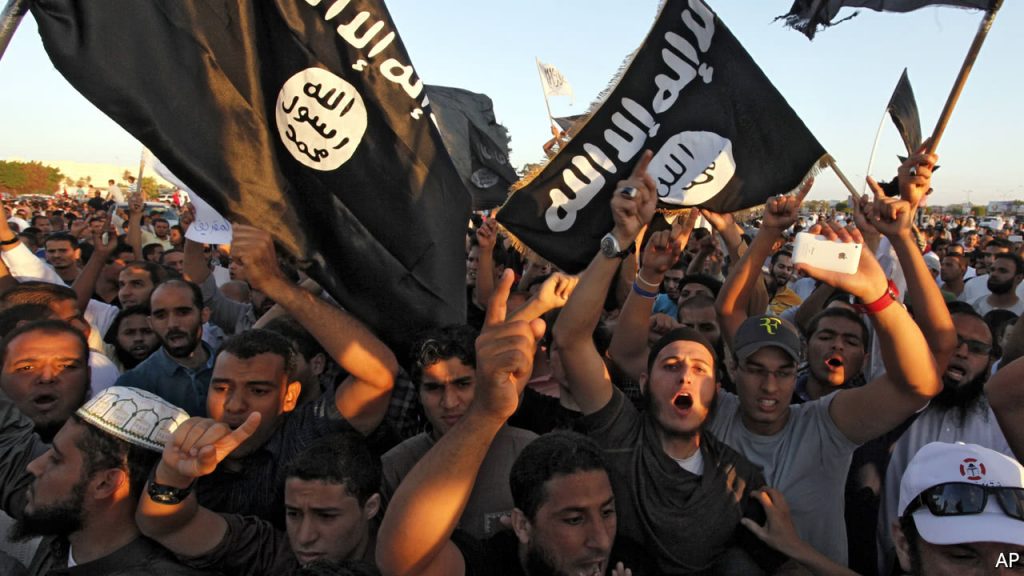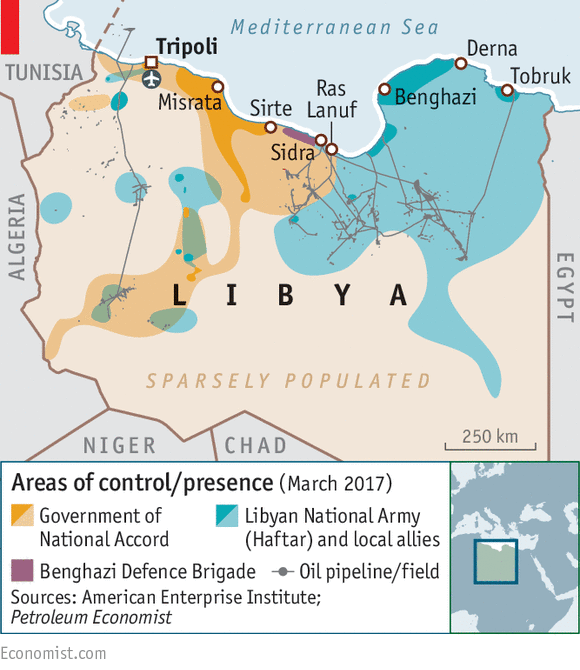- GOLD IRA
- Download Our 2024 Precious Metals IRA Investor’s Guide.
Click Here  Gold IRA
Gold IRA
 Investing
Investing
-
- CRYPTO IRA
- PRICES & STATS
- RETIREMENT PLANS
- BLOG
 Questions? Call (888) 820 1042
Questions? Call (888) 820 1042
Libyan Airport Clashes Encourage You to Hold Gold
Disclosure: Our content does not constitute financial advice. Speak to your financial advisor. We may earn money from companies reviewed. Learn more
Last Updated on: 15th January 2018, 07:24 pm

This past week saw a worrisome clash break out in Libya. Two rival militias started a battle close to the international airport in Tripoli. This caused flights to be grounded in the country's main airport. When the battle was over, 16 people had died. It proved how tenuous the United Nations-supported government control over Tripoli really is six years after the fall of long time strongman dictator Qaddafi.
Geopolitical incidents like this one are another reason that you must have gold in your portfolio. Gold is the world's longest lasting hedge against global instability. It makes sense in an IRA. This is why you need to acquire some IRA-approved gold today to protect your retirement assets.
Firefight Near Libyan Capital Proves How Fragile the Country Remains
The clash today at the capital's airport did more than kill over a dozen people. It wounded 38 other people according to the Tripoli Field Hospital head Abdul Al-Rabti. The assault was not primarily aimed at the airport at all. It turns out that an important prison is housed inside the facility.
The assailants were attempting to free Islamic State and al-Qaeda prisoners with the attack. Also detained here is the suicide bomber's brother from the Manchester, Britain concert terrorist attack back in May.
It was one of the over a dozen militias plaguing Libya that led the assault. The Al-Burga militia carried out the attack that saw two waiting cargo planes damaged and caused a highway to be closed. The airport itself was defended by still another militia the Special Deterrence Force, which runs and protects the facility. This group is allied with the UN backed Sarraj administration in Tripioli.
Libya Remains Desperately Divided Despite UN Efforts
Back in 2015, the United Nations started major efforts to arrange a peace deal called the Libyan Political Agreement. Unfortunately their efforts to establish a true unity government did not extend beyond the capital and surrounding western section of the country. Libya has been divided into east and west despite their best efforts, with a strongman Khalifa Hafter dominating in the East.
Not easily deterred, the U.N. has decided to make a second effort at solving the country's massive problems. They have sponsored talks to come up with a better arrangement. The need is tremendous with the economy collapsing. Many thousands of refugees have become stuck in the country trying to escape to Europe. The Islamic State has also become resurgent in Libya.

Reasons that the original deal failed center on its lack of inclusion. Many important elements had been left out of the arrangement. Even militias that overthrew Qaddafi were excluded. Besides this, others complained that the world community had forced this solution on the country.
Article 8 represented a key feature that stirred anger. It mandated that every top official in the present governments would have to stand down after the agreement began. The deal also neglected to determine who would head up the country's armed forces.
The rival administration in the east, along with Haftar, refused to sign off on the agreement. As the most powerful figure in the east who also dominates the larger oil facilities of the country, his participation is critical. This map illustrates the point:

In the end, the best initial efforts of the UN were insufficient to bring the two groups together. They could not overcome the gulf between Prime Minister Sarraj's government and the rival one in the east part of the country that Khalifa Haftar dominates.
The UN's Second Attempt to Unify Libya
In its second effort to salvage crumbling Libya, the UN attempted to bring on board more than just the two governments. They also looked to include civil society groups and armed factions that had been sidelined previously.
October 21st was the last day of the month effort. As of the end of 2017, no agreement had been reached. The UN aims to see a national conference held that will choose candidates for the three member executive.
The UN envoy Salame is attempting to see a referendum schedule established in a year or less to approve the constitution (which is still not finally written). He is also to set a date for presidential and legislative elections to be held. It is a lot to deliver and no one can see how Salame will manage to bring everyone together in time.
Unity Government Fails to Deliver
So far the main problems in fixing Libya have come down to the Sarraj unity government failing to deliver and the dangers of a rival strongman in the east. The UN backed Government of National Accord began functioning in 2016 in Tripoli. Yet in two years, it has failed to accomplish much.
Prime Minister Sarrah has no direct army he controls, which means that he must use ally militias for spreading his authority. They were able to regain control of Sirte back from the Islamic State. Yet ISIS has gained ground in other parts of the country. This is now a significant security threat not only for Libya, but also for neighboring countries.
Besides this, the economy has continued to deteriorate. Sarrah has received the bulk of the blame for this tragedy. Though his mandate expired at the end of the year, he is likely to remain in control until a new agreement framework can be agreed.
Danger Posed by Strongman Khalifa Hafter
The second great threat to progress is what to do about the eastern strongman Khalifa Hafter. As a military officer from the days of Qaddafi, he refuses to walk away from the political struggle. Since the joint meeting he attended with Sarraj in July, Hafter has become more legitimized. He has labored tirelessly to demonstrate that he is the only figure who can run a unified nation.
With no significant opposition, it will be hard for someone to challenge him. Yet winning the election requires that he gains followers in the west and center of Libya where close to three quarters of the inhabitants live. A huge number of this 70 percent of Libyans hate him because of his ties to the brutal Qaddafi government.
Hafter does not have enough military force to unilaterally seize the whole nation as of now. Without sufficient military backing, his only potential path to nationwide power is through winning the presidential elections.
Effects on Libya Reverberate Beyond the Borders
Libya itself continues to suffer from the ongoing six years of infighting. The country's largest oil reserves in Africa have suffered from production shut downs in the last three years. The Libyan central bank estimates that the lost revenues have been higher than $160 billion.
For 2017, the GDP will amount to about $13.9 billion. This represents a mere 15 percent of the 2012 numbers per the central bank. Critical services including electricity, education, and health have suffered.
The impacts on Libya are reverberating well beyond the country's own borders. There has been chaos exported to neighbors and Europe beyond. Smuggling networks have developed which include illegal transactions in weapons, drugs, and most tragically people. Much of the European immigration crisis stems from the problems in Libya.
Gold is the Insurance You Need
The continuing crisis in Libya reminds you why you need gold. Geopolitical chaos like this is why gold still glitters for many world leaders. Now is a good time to learn about the Top 5 gold coins for investors. You can even buy gold bullion in monthly installments today.



 Silver
Silver Gold
Gold Platinum
Platinum Palladium
Palladium Bitcoin
Bitcoin Ethereum
Ethereum






